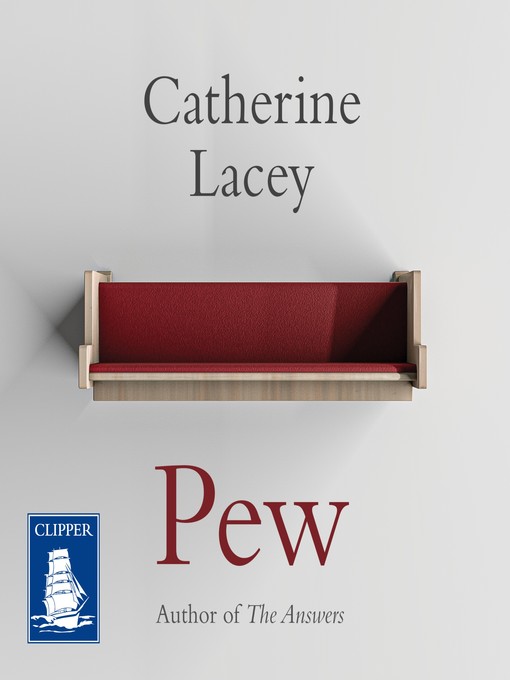
Pew
- اطلاعات
- نقد و بررسی
- دیدگاه کاربران
نقد و بررسی

Narrator Bahni Turpin gives a tour-de-force performance in this strange allegory featuring a nondescript person found sleeping on a church pew in a small, unnamed Southern town. Turpin finds a middle-gender tone for Pew's inner monologue as they describe their feelings and impressions of life and love. Pew refuses to speak, so the townspeople pass them from one institution to another as they debate their identity. Turpin's extraordinary range includes everyone from small children to older men and women. In one scene involving the mysterious annual Forgiveness Festival, Turpin switches age and gender with the ease of water slipping through one's fingers. PEW is a strange ride, but trust Turpin to steer the ship. R.O. Winner of AudioFile Earphones Award � AudioFile 2020, Portland, Maine

Starred review from February 10, 2020
Lacey (Certain American States) sets an ambitious, powerful fable of identity and belief in the contemporary American South. An unnamed person with no sense of gender or race (“Anything I remember being told about my body contradicts something else I’ve been told. I look at my skin and cannot say what shade it is”) is found sleeping in a church pew by Steven, Hilda, and their three boys. The family decide to house the mute stranger, whom they name Pew. The action, which takes place over one week, mostly consists of Pew’s interactions with the town’s residents, who offer one-sided monologues to Pew about their Christian beliefs and believe Pew is their “new jesus.” Pew’s indeterminate features and the townspeople’s habit of projecting onto Pew lead them to see what they want to see, and here Lacey showcases a keen ear for the lilting, sometimes bombastic music of human speech that reveals more than her speakers intend. Pew, meanwhile, bonds with Nelson, a teenage refugee from a war-torn country whose intelligence his caretakers underestimate. Lacey’s incisive look at the townspeople’s narrow understanding draws a stark contrast with Pew’s mute wishes, imagining a life in which “our bodies wouldn’t determine our lives, or the lives of others.” The action builds toward a mysterious Forgiveness Festival and a memorable climax with disturbing echoes of Shirley Jackson’s “The Lottery” unveiled in a harrowing crescendo of call and response. Lacey’s talent shines in this masterful work, her best yet.




دیدگاه کاربران